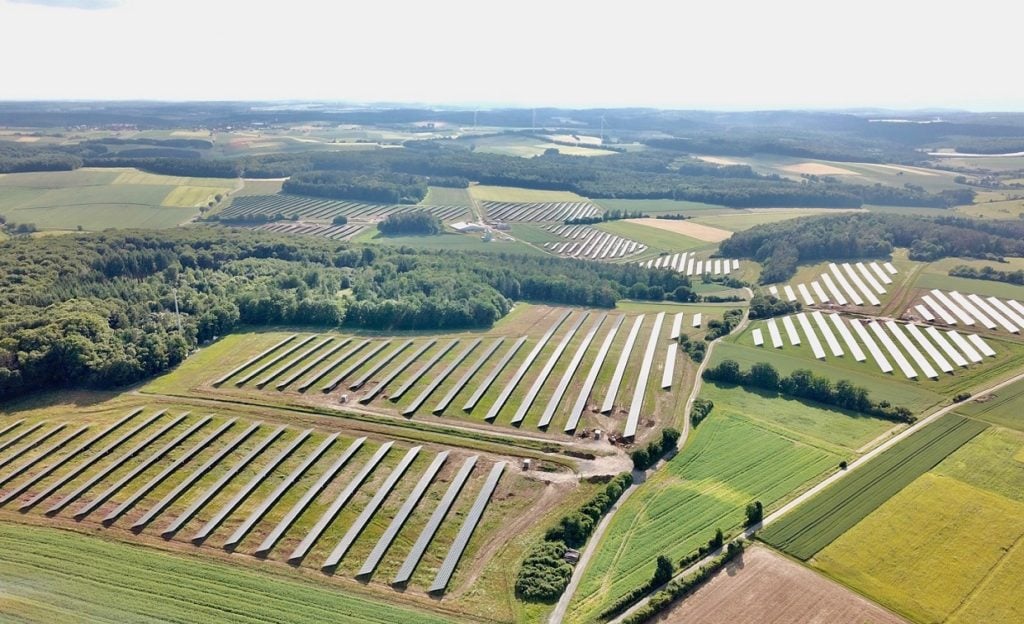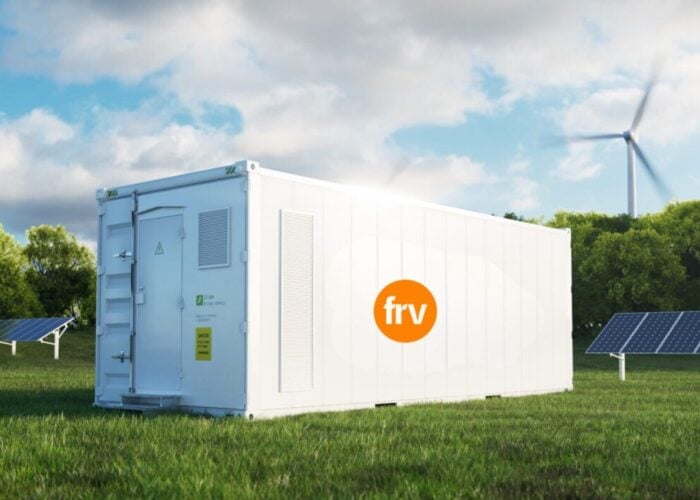
The European Union’s (EU) solar PV sector has navigated a year beset by supply chain disruptions and module prices hikes to post record levels of annual deployment, according to research from SolarPower Europe (SPE).
Around 25.9GW of solar PV was added by the bloc’s 27 member states in 2021, a 34% increase on last year’s figure, the trade association said in its latest EU Market Outlook for Solar Power report, published today.
Try Premium for just $1
- Full premium access for the first month at only $1
- Converts to an annual rate after 30 days unless cancelled
- Cancel anytime during the trial period
Premium Benefits
- Expert industry analysis and interviews
- Digital access to PV Tech Power journal
- Exclusive event discounts
Or get the full Premium subscription right away
Or continue reading this article for free
While the capacity addition is 16% higher than SPE’s forecast in last year’s report, it is 5% lower than projections included in its Global Market Outlook, released in July, when it was less clear how supply shortage-related project delays would impact deployment.
Taking the EU’s total solar fleet up to 164.9GW, the latest figures come ten years after the previous record of 21.4GW of solar additions was set in 2011, which marked the beginning of a years-long slump as the sector transitioned from feed-in tariffs to new incentives and market models.
In 2021, the top five countries for solar deployment remained the same as last year as Germany topped the ranking by adding 5.3GW, up on 4.9GW installed in 2020. SPE said the country has been experiencing a second boost since 2018, thanks in part to attractive feed-in premiums for medium- to large-scale commercial systems and a tried and tested regulatory scheme.
Spain added 3.8GW, with the vast majority of projects realised from power purchase agreement-based systems out of a “gigantic pipeline under development” in the country, according to SPE. “This makes the Southern European country probably the world’s largest market for subsidy-free solar, but it also demonstrates that grid constraints can be a major burden for rapid deployment of large solar volumes,” the report said.
The third spot is taken by the Netherlands, which added 3.2GW, with the commercial rooftop segment said to be the main driver of growth. Installs could have been even higher, SPE said, but the sector is facing challenges in terms of securing land and grid connections.
Poland continued its upward trajectory, adding 3.2GW, while France was in fifth place, deploying a record 2.5GW.
Top five EU markets for solar deployment in 2021
| Country | Capacity additions (GW) | Total installed capacity (GW) |
| Germany | 5.3 | 59.9 |
| Spain | 3.8 | 17.9 |
| The Netherlands | 3.3 | 13.1 |
| Poland | 3.2 | 7.1 |
| France | 2.5 | 13.2 |
Making up the top ten EU markets for 2021 solar deployment are Greece (which added 1.6GW), Denmark (1.2GW), Italy (800MW), Hungary (700MW) and Sweden (700MW).
The report describes Denmark as the EU’s “latest solar shooting star”, with gigawatt-scale achieved almost exclusively through utility-scale PV projects built without subsidies for supplying power to corporate buyers.
This year’s record is considered only another milestone towards much higher annual installation levels in the coming years, SPE said, with annual EU deployment set to pass the 30GW threshold next year before reaching almost 50GW in 2025.
According to the trade association’s projections, all EU member states are on track to reach the solar targets included in their National Energy Climate Plans (NECPs) by 2030 or earlier. While it said this reflects solar’s “exceptional performance when it comes to cost competitiveness and technological versatility”, it demonstrates that deployment ambitions need to be raised.
Estonia and Latvia are said to have already reached their 2030 deployment goals already, while Poland, Ireland and Sweden are expected to do so in 2022.
SPE forecasts that the EU’s total solar fleet will increase from 165GW installed today to 672GW in 2030.
While the European Commission earlier this year updated its Renewable Energy Directive to target 40% renewables in the bloc’s energy mix by 2030, SPE is calling for at least 45%, which it believes will put the continent on track to deliver on the 1.5° Paris Agreement scenario.
To reach that milestone, it would be necessary to have 870GW of solar installed by 2030, which is 29%, or 198GW, higher than the association’s most-likely scenario projections.






